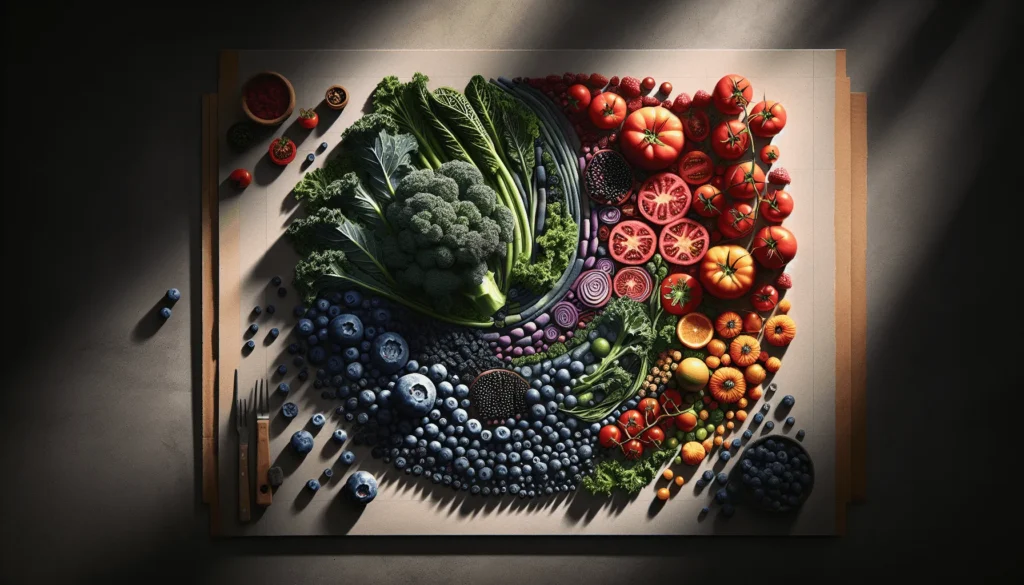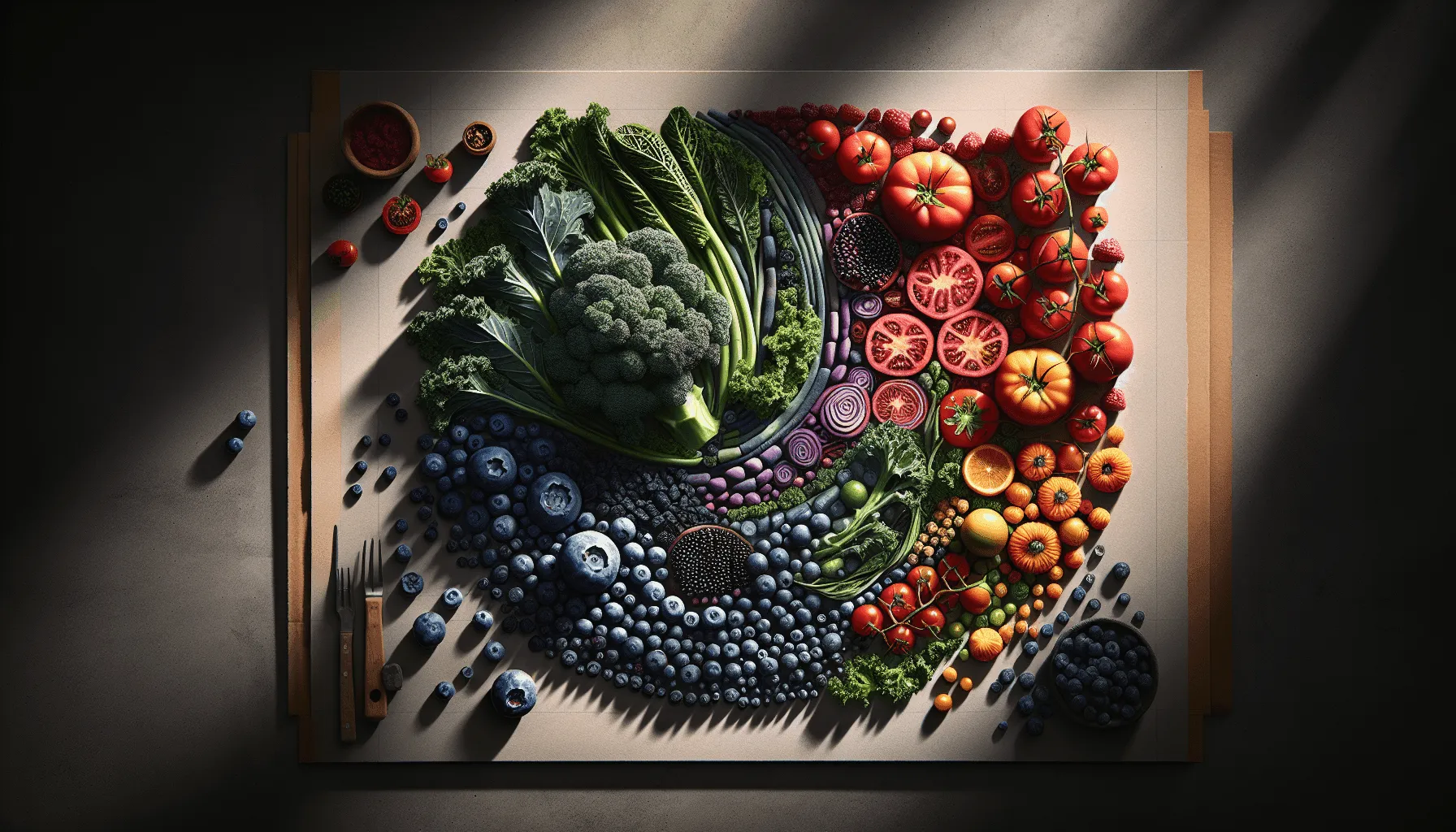
What role do antioxidants play in liver health? Are they the unsung heroes of our body’s detoxification system, or just another health buzzword? As you journey through this article, you’ll uncover the profound impact that antioxidants can have on your liver and overall well-being. By the end, you’ll gain a greater appreciation for how these tiny molecules work tirelessly to maintain the balance and vitality of one of your body’s most critical organs.

The Liver: Your Body’s Natural Filter
Before you delve into the specifics of antioxidants, it’s crucial to understand the liver’s role in your body. The liver is a powerhouse organ that performs a variety of essential functions, including detoxifying harmful substances, producing bile for digestion, and storing vitamins and minerals. Think of it as your body’s natural filter – tirelessly working to cleanse the blood that passes through it.
Detoxification: More than Just a Buzzword
The detoxification process might sound like something trendy, but its biological significance cannot be understated. Your liver processes toxins, such as alcohol, drugs, and metabolic waste, converting them into harmless substances excreted from the body. Without this detoxification process, these toxins could accumulate and cause serious health problems.
Bile Production and Metabolic Functions
Bile production is another critical function of your liver. Bile helps break down fats during digestion, making nutrients more accessible to your body. The liver also plays a crucial role in regulating metabolism, impacting your energy levels, and synthesizing proteins necessary for blood clotting.
Antioxidants: Guardians of Cellular Health
Now that you have a baseline understanding of the liver’s essential functions, it’s time to explore what antioxidants are and how they contribute to liver health. Antioxidants are molecules that prevent the oxidation of other molecules, which is crucial because oxidation can create free radicals that damage cells.
What are Free Radicals?
Free radicals are unstable molecules that can damage cells, proteins, and DNA by taking electrons from other molecules, leading to oxidative stress. This stress is linked to various chronic diseases, including liver disease. Therefore, maintaining a balance between free radicals and antioxidants is critical for overall health.
Antioxidant Sources
Your body naturally produces some antioxidants, while you can obtain others from your diet, primarily through fruits, vegetables, nuts, and whole grains. Common dietary antioxidants include vitamin C, vitamin E, flavonoids, and carotenoids. Including these nutrients in your meals can help protect your liver from damage.
How Antioxidants Benefit Liver Health
Antioxidants play several roles in maintaining liver health, ranging from protecting against oxidative stress to aiding in the repair of liver tissue. Understanding these roles can empower you to make informed decisions about your diet and lifestyle.
Protecting Against Liver Damage
Oxidative stress is a significant player in liver disorders, including fatty liver disease, cirrhosis, and hepatitis. By neutralizing free radicals, antioxidants help prevent this stress, reducing the likelihood of liver damage. This protective quality makes them indispensable for individuals at risk of liver diseases.
Promoting Liver Detoxification
Antioxidants assist in detoxifying the liver by boosting the production of enzymes that help convert toxins into less harmful substances. Glutathione, for example, is a potent antioxidant that supports liver detoxification processes, ensuring toxins are efficiently processed and eliminated.
Supporting Cellular Repair and Regeneration
The liver has a remarkable ability to regenerate itself, and antioxidants play a critical role in supporting this capability. After liver damage, antioxidants help repair and regenerate liver cells, promoting recovery and reducing inflammation.
Reducing Inflammation
Chronic inflammation can lead to liver damage and is a risk factor for developing liver disease. Antioxidants like polyphenols have anti-inflammatory properties that can reduce inflammation in the liver, thus protecting its functional integrity.
Incorporating Antioxidants into Your Diet for Liver Health
Given the numerous benefits antioxidants offer to liver health, you might wonder how best to incorporate them into your diet. The following sections provide practical guidance on optimizing your antioxidant intake.
Foods Rich in Antioxidants
Certain foods are particularly high in antioxidants and should be staples in your diet to support liver health. Here’s a table to guide you:
| Antioxidant | Food Sources |
|---|---|
| Vitamin C | Citrus fruits, strawberries, bell peppers |
| Vitamin E | Nuts, seeds, spinach, broccoli |
| Flavonoids | Berries, apples, onions, cacao |
| Carotenoids | Carrots, sweet potatoes, kale |
By including a variety of these foods in your meals, you can ensure that your liver receives the support it needs to function optimally.
Supplements: When You Might Need a Boost
While a balanced diet is the best way to obtain antioxidants, there are circumstances where supplements may be beneficial, especially if dietary restrictions limit your food choices. It’s important to consult with a healthcare professional before starting any supplement regimen.
Cooking Methods and Antioxidant Retention
Cooking can affect the antioxidant content of foods. Boiling and steaming are generally better for preserving antioxidants compared to frying or long-duration roasting. Opt for cooking methods that retain the most nutrients to maximize your antioxidant intake.

Lifestyle Considerations for Enhanced Liver Health
Beyond diet, several lifestyle factors can influence your liver health and antioxidant levels. Small changes can have significant long-term benefits for maintaining a healthy liver.
Regular Exercise
Engaging in regular physical activity can boost your body’s antioxidant defenses. Exercise increases the natural production of antioxidants and reduces oxidative stress, helping to protect the liver.
Limiting Alcohol Consumption
Excessive alcohol intake can overwhelm the liver and cause damage over time. By reducing or eliminating alcohol consumption, you reduce oxidative stress on the liver, allowing antioxidants to work more effectively in protecting liver cells.
Avoiding Environmental Toxins
Exposure to environmental toxins such as pesticides and pollutants can increase oxidative stress on the liver. Using organic products and maintaining a clean living environment can limit your exposure and help keep your liver healthy.
Stress Management Techniques
Chronic stress can increase free radical production, impacting liver health. Practices like meditation, breathing exercises, and sufficient sleep can help manage stress and maintain a healthy balance of antioxidants in the body.
Common Myths About Antioxidants and Liver Health
There are several misconceptions about antioxidants and their relationship with liver health. Understanding them can help you avoid misinformation and make more informed choices.
Antioxidants as a Cure-All
While antioxidants are beneficial, they are not a panacea for all liver conditions. They support liver health, but they cannot reverse significant liver damage on their own. It’s essential to view antioxidants as part of a broader health strategy that includes diet, lifestyle, and medical care.
Only Supplements Can Provide Adequate Antioxidants
Dietary sources of antioxidants are usually sufficient for most people. Supplements should only be used to fill gaps when dietary intake is inadequate, and under the guidance of a healthcare professional.
Conclusion: Empowering Your Liver Through Antioxidants
By now, you should have a clearer understanding of how antioxidants support liver health and why they are a vital part of maintaining a healthy body. From aiding in detoxification to protecting against cellular damage, antioxidants are indispensable allies in your liver’s robust functioning. By incorporating antioxidant-rich foods and embracing a healthy lifestyle, you empower your liver to perform its many functions more effectively, all while contributing to your overall well-being.
Incorporate what you’ve learned here into your daily routine, and let antioxidants play their critical part in keeping your liver – and your whole body – healthy and vibrant.